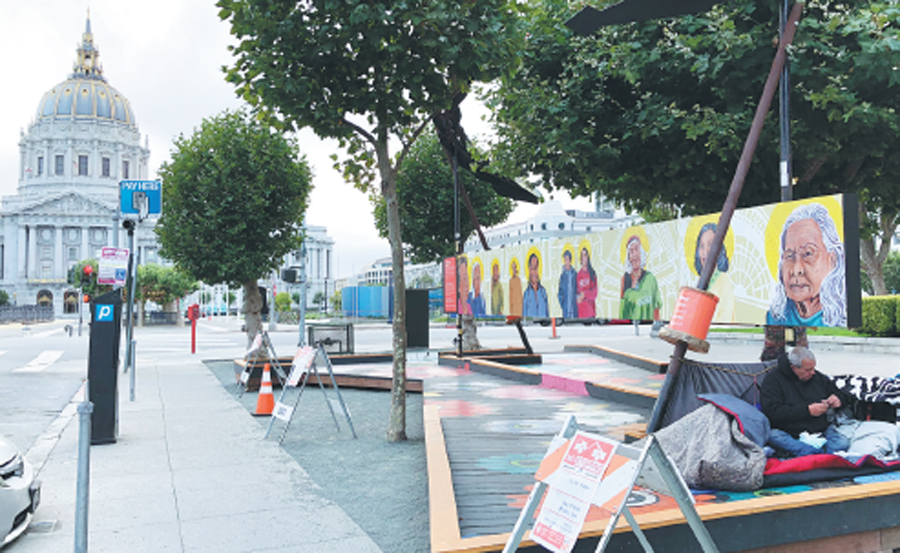San Francisco tackles crisis on the streets


Shocking levels of illness
Outside of Lew's office building in downtown San Francisco, homeless people sat on the sidewalk with their belongings in shopping carts, a few blocks from the headquarters of Uber and Twitter.
San Francisco's homeless issue seems more pronounced because of the shocking levels of illness that people are seeing, said John Snook, executive director of the Treatment Advocacy Center.
"People who are homeless and who have a mental illness are frequently allowed to deteriorate until they are very ill, far beyond what we would allow for other illnesses," he said. "Because the city is relatively dense, and the population is in close proximity, it is easy for people to see just how the system is failing."
Tourism and hospitality executives have increasingly expressed concerns over the negative effects on their $9 billion industry. Local hoteliers and business said the homeless have caused the cleanliness of the streets to worsen, creating a perception that they aren't safe.
Last year, 25.5 million people visited San Francisco, a slight increase from 2016 but lower than the prediction of the San Francisco Travel Association in early 2017.
The organization said different factors contributed to the flat growth, but the main complaints from tourists are the city's hygiene problems.
Kevin Carroll, executive director of the Hotel Council of San Francisco, which represents more than 100 hotels, said they are losing business.
Last month, a major Chicago-based medical association was reported to have moved its convention out of San Francisco, leaving the city with a $40 million loss. Street safety issues were blamed.
The loss of a convention not only affects the hotels, but also businesses around them and the city as hotel guests spend more money outside the hotel, said Carroll.
In the bustling Union Square, homeless people sit under lamp posts on street corners and hold signs, begging for money. In Embarcadero, home to several waterfront attractions, urine stains can be seen on the street. It is especially smelly near bus stations or subway entrances.
"They (tourists) are curious about those homeless people in San Francisco, a city they think is wealthy and beautiful," said Vivian Hu, a San Francisco-based Chinese tour guide. "I think the image of the homeless changed their perception of the beautiful 'City by the Bay.'"
London Breed, who was elected mayor in June, has vowed to reform the city's mental health system and provide more housing for low-and moderate-income residents.
Since taking office in July, Breed has opened a fifth navigation center, a short-term homeless shelter, and signed an $11 billion two-year budget targeting homelessness, housing and street cleanliness, including $60 million for critical homelessness service programs.
































